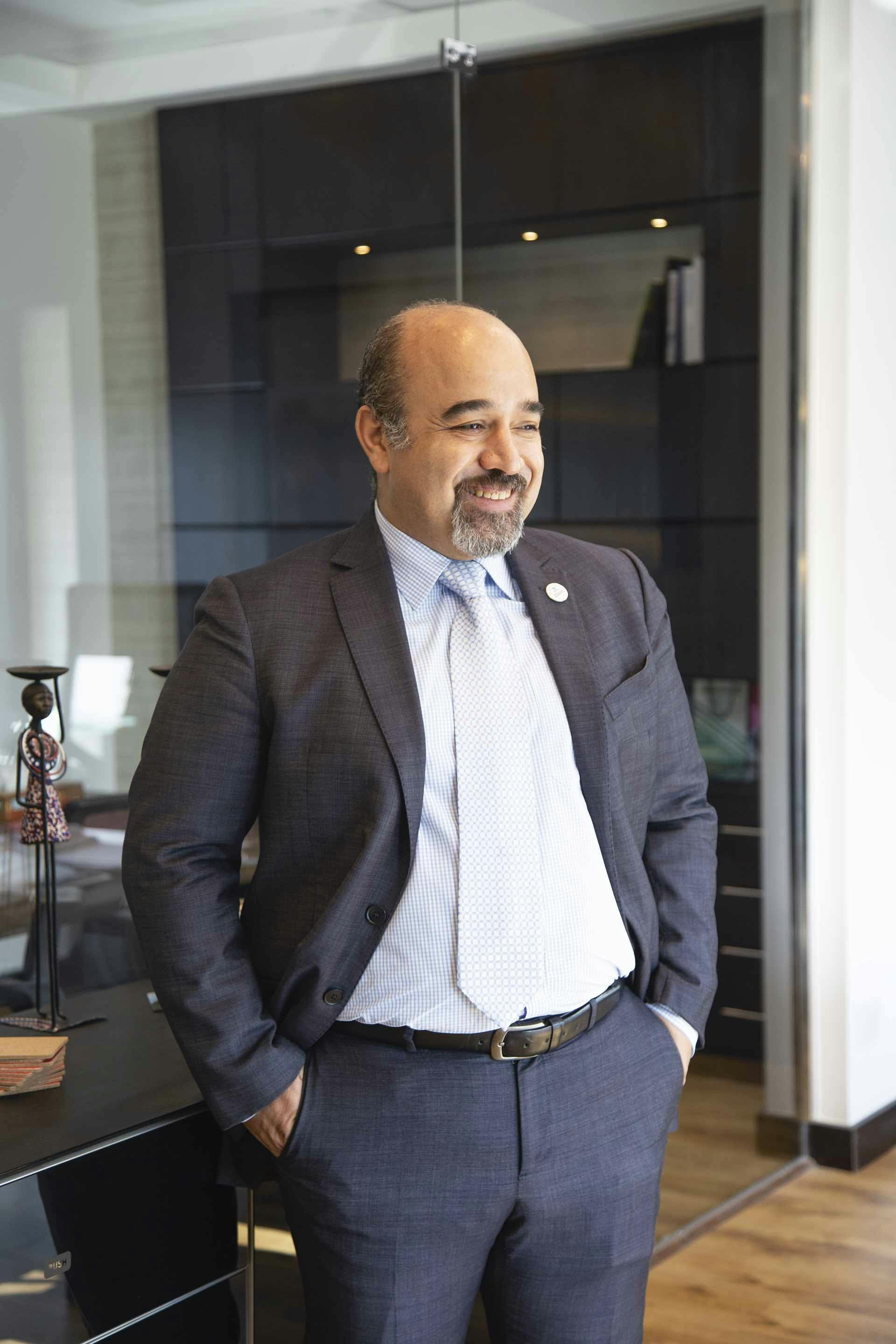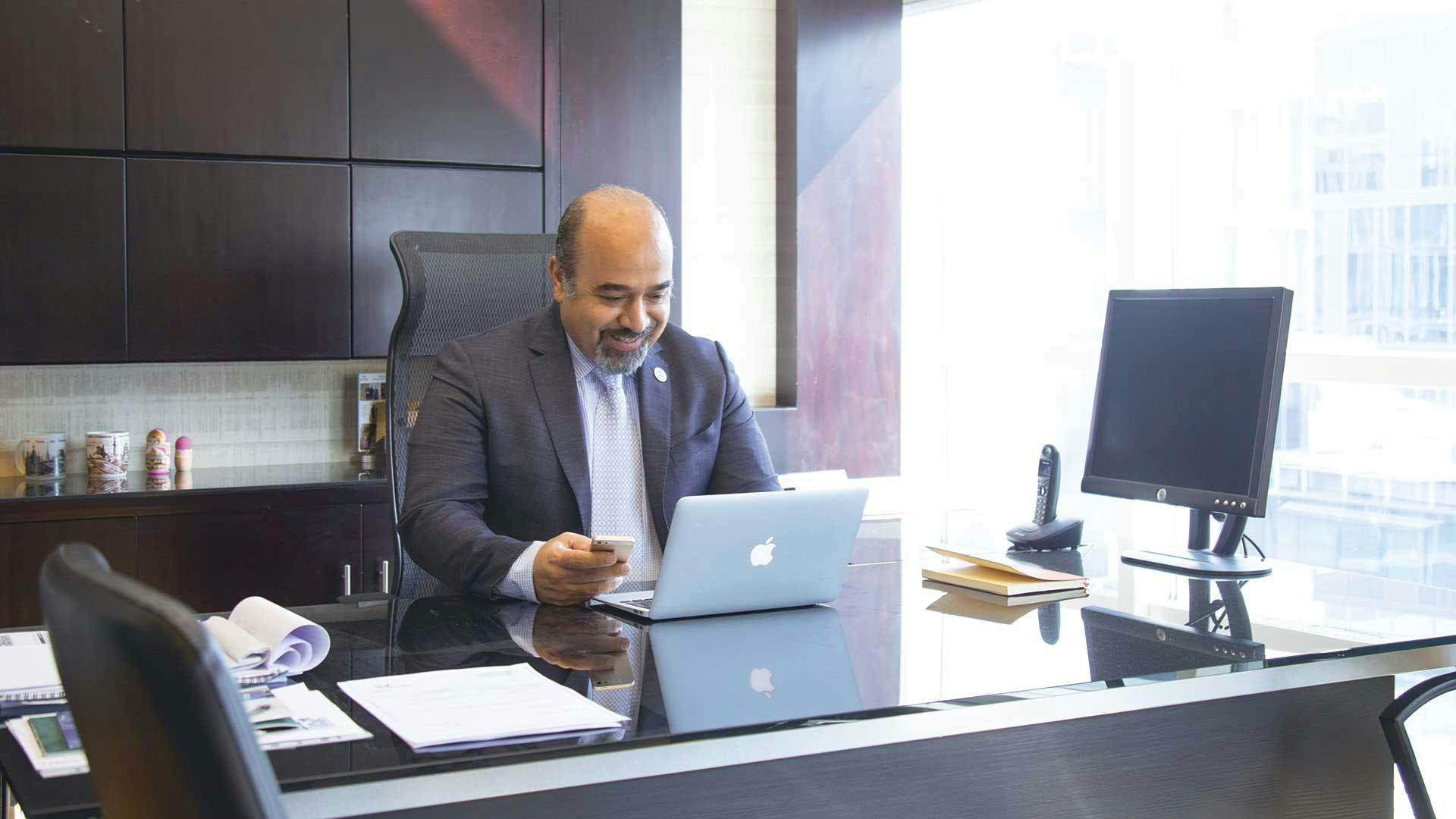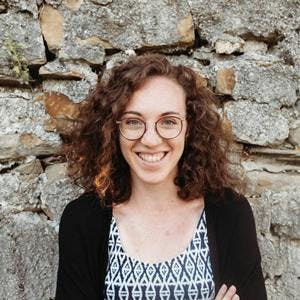How ecotourism is bringing new opportunity to Egypt’s Nubian communities
hmed Yehia has had a varied career, starting as an architect before spending 14 years at Vodafone in IT, marketing and strategy. He also has a passion for traveling, which sparked the idea for founding tourism company ECO Group in 2014. In 2017, he expanded into hospitality and started ECO Nubia, an ecolodge in the Egyptian city of Aswan that has panoramic views of the temple island of Philae. The lodge has been created using sustainable materials, while both preserving and celebrating Nubian culture and heritage.
Ahmed shares his experience of socially and environmentally responsible tourism and offers some provides to aspiring founders.
What sparked your interest in ecotourism?
I’ve been traveling to nontraditional destinations within Egypt for more than fifteen years. We started traveling as a group of friends in 2000, when it wasn’t so popular to go to these areas. Over time, we noticed a change in the market and the demand for people to visit these places increased.
In 2014, I decided to quit my corporate life and start my own business. Before that, I completed a master’s degree in cultural heritage management, focusing on how to use heritage in tourism. I wanted to have an academic background in tourism. It helped me understand what an ecotourism business is and the principles for running one.
I opened ECO Group in 2014. The first arm was ECO Adventure, a tour operator for ecotourism. We used to take guests camping in the Western Desert, hiking in the Sinai mountains, cruising on the Red Sea to go scuba diving and fishing. We were all over Egypt exploring so many places.
Then we decided to open a new function inside the company called ECO Events, taking corporate events into nature. We started approaching multinational companies like Pepsi, Coca-Cola, Vodafone and taking their offsite, strategy and board meetings into places like the desert, mountains and ecolodges.
Unfortunately, after the security issues in Egypt between 2014 and 2017, we noticed that lots of these places weren’t accessible anymore. We were gradually going out of business, so we decided to change our business model and focus on hospitality instead. In the ecotourism industry, this meant we should build ecolodges, or eco-friendly hotels. The first place that came to mind was the Nubian area of Aswan.
Ecotourism is about going to natural places, dealing with a community that has a strong cultural heritage and generating money to conserve nature and help the local community.
Heissa Island in Aswan used to be completely off the tourism map. In 2012, we ran our first camping trip there. Then the Nubians invited us to stay in their homes. The Nubian families were responsible for everything and they received a great amount of money from the tours. We explored, hiked the island, swam in the Nile, visited the attractions in Aswan. From 2012 to 2017, Heissa Island became a tourist destination in Aswan.
In 2017, we decided to start working in hospitality. By coincidence, a group of Nubians approached us while we were in Heissa, and said, “We would like you, Mr. Ahmed, to develop our island like you did with Heissa Island.” So they took me to see their island and I found it abandoned. There were no services, water, sewage or electricity – nothing. Family by family, they’d left until it was completely empty by the 1980s. When I was there in 2017, the houses were demolished.
I asked them, “What should I do with this? I can bring you tourists and guests, but there is nothing here.” They said, “Do whatever you want, but we don’t have the financial capacity to even build houses.”
The location was amazing because the island is directly in front of Philae, one of the most important temples in the south of Egypt. You have a full panoramic view of the temple. I decided it was an investment opportunity and it was the perfect place to start our first ecolodge. I contacted some of my friends who invest in many projects and they decided to come on board. We formalized a company called ECO Nubia. The objective is to rebuild the infrastructure and houses and to put the island on the tourism map as an eco-friendly destination.
How many pivots did you make throughout your career?
In 1999, I decided to study computer science to try and combine it with architecture. I spent one year studying computer science, and Vodafone offered me a job while I was presenting my graduation project. They wanted me as a computer engineer and not an architect. I had to decide if I should stick to my plan to combine architecture with computer science or change.
Vodafone was a new company at that time. Everyone in Egypt dreamt of working for them, so I decided to try this new challenge. I went to Vodafone and spent 13 years of my life there because of the company’s reputation and the income.
After some time, I realized I’d made the wrong decision following the money and glory because I got bored of IT. After five years I left IT and decided to go into marketing, where I was responsible for a department called commercial planning and strategy. This was what helped me learn business. The objective was to spend some time there, then go out and open my business. The plan was to stay for four years, but unfortunately the revolution of 2011 happened and I had to stay until 2013.
Then I quit and opened my company in 2014. I decided to work in travel and tourism because it was my passion. I didn’t want to again make the mistake of doing something I didn’t like just because of the money. I explored what I loved to do, and it turned out to be travel. Then I decided to focus on something unique: ecotourism.

Ahmed Yehia, Founder of ECO Group. Photo: Wafaa Samir
How did you start making money?
The first company, ECO Group, was personal financing. It used my savings from working for Vodafone. For ECO Adventures and ECO Events, the money was generated from the trips and adventures. For ECO Nubia, I needed more money to build everything on the island and I started looking for investors. It started with phone calls to my two mentors from Vodafone who I talk to when I have business challenges. With ECO Nubia, I called them to discuss the business idea, asking for their help to find people to invest.
They said, “Why search for others when we can support you here? We can be your investors.” So my mentors ended up being my investors. Both of them put money into the project, and we formalized the company.
We opened the restaurant in January 2018 and the lodges, beach and event hall in November 2018. When we did our first financial cycle in April 2019, we saw we had exceeded all the numbers in the feasibility study I’d prepared. That was a good measure for us to know we were on the right track.
In March 2019, we were nominated for a prize from the world tourism organization. We ended up winning the prize for best startup in sustainable tourism in the Middle East for 2019. We started hearing from international tour operators who wanted to work with us, and we even got invited by the World Tourism Organization to attend their general assembly in St. Petersburg. That was a great boost for our sales.
What was your best decision?
Following what I love to do. Everyone was hesitant about my decision to open a business in tourism. Opening a company in an industry I had no experience in was criticized by many people. Now, they’re congratulating me on being courageous and going through with this.
The key to its success was following my passion. It took me a while to make this decision; I graduated in 1998 and opened the company in 2014.
My advice is to follow your passion
What professional advice would you give people just starting out?
My advice is to follow your passion. The second piece of advice is to study finance. Take a course, or go work in something related to finance. You have to know about it if you’re opening a business because without a financial background, you won’t easily make it. It will help you control the financial arm of the business, and this is the dealbreaker of the whole show. If you run out of cash, you’ll close. Some people just follow their passion without any financial background, and this is so risky.
The third thing is to get some partners on board, even if you don’t need them. Partners will keep you on track. When we have a dream, we fly in the sky. This can be risky because you’ll never have something done on time; you’ll always want it to be perfect. Your partners will keep you down to earth, telling you when to stop changing things and when to open the business to get some money out of it.
Why did you choose to open ECO Nubia in Aswan?
Ecotourism is about going to natural places, dealing with a community that has a strong cultural heritage and generating money to conserve nature and help the local community's financial ecosystem.
Aswan is suitable from a security view and, from a heritage view, it was a great spot. Nubians have a very strong heritage that lots of people don’t know about. It was a great opportunity to introduce this to people in a nice way. The Nubians really appreciate what we’re doing and they feel proud about how their heritage is presented.
Looking forward, what’s your biggest challenge?
We are living it. We didn’t see COVID-19 coming and it hit us hard. In the tourism sector, we have to be prepared for surprises that are usually out of our hands. We had very high hopes for revenues for 2020, but we had to recalculate everything based on the situation.
A version of this interview is featured in Startup Guide Egypt. Order your copy now for more exclusive interviews and inspiring insights.
Written by Alexandra Connerty.
Repackaged by Hazel Boydell.

